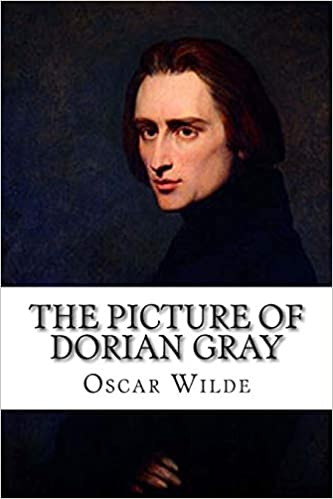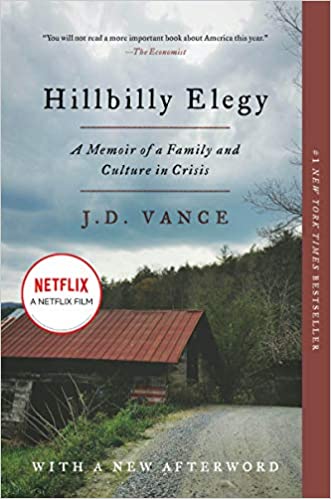Look, we’re all tired of hearing snobs declaim, “Well, the book was better, you know?” I’m even tired of hearing myself say it, which I’ve occasionally been known to do. And there are plenty of film adaptations that I enjoy as much as or even more than their literary counterparts (see, for instance, much of Saoirse Ronan’s filmography). But there is something quite enervating about seeing a beloved classic—or even a not-so-critically acclaimed novel!—being turned into a limp, listless vehicle for an A-list actor, a sullen would-be blockbuster with horrible special effects, or just an outright unwatchable piece of drivel we’re all supposed to take seriously because it was a book first.
The following list could easily have been twice as long—thrice, even! But this set of movies is especially emblematic of the many ways filmmakers in the 21st century have botched and butchered novels in their translation from the page to the screen.
Rebecca (2020)
Daphne du Maurier’s 1938 novel had already been famously adapted back in 1940 into an Academy Award-winning film (directed by Alfred Hitchcock, no less). The black and white film mined the novel’s gothic aesthetic for a sumptuous and terrifying tale about a young woman who weds a moneyed English man and moves into his estate only to be haunted by his dead first wife. In Ben Wheatley’s hands, du Maurier’s psychologically probing character study is refashioned into a rather steamy and only occasionally scary Lifetime TV movie romance between Maxim de Winter (a much too dashing Armie Hammer) and the new Mrs. de Winter (Lily James, in full doe-eyed mode). “I can see the woman I am now,” she beams in its closing moments, “And I know I have made the right decision. To save the one thing worth walking through the flames for: Love.” Compare to the last lines of the novel: “The road to Manderley lay ahead. There was no moon. The sky above our heads was inky black. But the sky on the horizon was not dark at all. It was shot with crimson, like a splash of blood. And the ashes blew towards us with the salt wind from the sea.” Is it surprising that so many of us found ourselves rolling our eyes at such absurd reframing of one of literature’s most gripping final images?

Beowulf (2007)
The tale of Beowulf, chronicled in an untitled Old English poem, has all the hallmarks of a 21st century comic book movie: epic battles, heroic protagonists, bombastic fight scenes, monstrous villains, and even dragons. Shot with motion-capture technology, it was billed as a way to bring this ancient story into the modern world. But focusing on painstakingly created special effects (like the choice to give Angelina Jolie’s near-nude character cave-dwelling high heels?) meant we got less of a comic book story and more of a Boris Vallejo painting, with no movement or depth.

Gulliver’s Travels (2010)
Set in modern-day New York, Rob Letterman’s Gulliver’s Travels follows Jack Black as “Lemuel Gulliver,” a sad sack wannabe travel writer who considers Shakespeare, Krakauer, and “the hot mom who wrote Twilight” his writing inspirations, as he finds himself stranded in Lilliput (on his way to Bermuda; don’t ask) where he’s imprisoned and proceeds to, in broad strokes, gesture toward a Cliffs Notes version of Jonathan Swift’s seminal satire. Do I actually need to explain why it belongs on this list? But lest you need more convincing, the script further includes nods to Guitar Hero, Yoda and Kiss, glaringly obvious attempts to “hip” up Swift’s story that further showed how much of this was merely a Jack Black comedy that used Gulliver’s Travels as the most tone-deaf marketing ploy on this list.

Dorian Gray (2009)
Like its “Picture”-less title, this dreary 2009 adaptation completely misses the point of Oscar Wilde’s infamous novel. (Who cares about Dorian without his picture?) With a listless Ben Barnes in the title role, this filmed Dorian may look the part but lacks the pristine charm (and later his unnerving cruelty) of his literary predecessor. In attempting to turn The Picture of Dorian Gray into a brooding, gothic superhero origin tale Oliver Parker muddles Wilde’s colorful prose in ways both literal and metaphoric, offering us what has to be the straightest (pun intended) take on this dandy protagonist as we’ve gotten yet. I mean, any film that wastes casting Colin Firth (Mr. Darcy himself!) as Lord Henry Wotton truly deserves our scorn.

Abraham Lincoln: Vampire Hunter (2012)
The title of Seth Grahame-Smith’s 2010’s mashup novel was always, perhaps, destined to become a “blockbuster” movie. Or a movie that desperately wanted to be a blockbuster (it ended up grossing only half as much as it cost to make). Instead of conjuring up a winking playful lark with impressive historical set-pieces, director Timur Bekmambetov delivered instead a laborious bore that didn’t live up to the absurdity its title promised. You’d think casting the studly Benjamin Walker as Lincoln would at least make this incongruous adaptation worth watching, but you may as well get your Walker fix elsewhere (may I suggest YouTube clips of his roles on Broadway in American Psycho and Bloody Bloody Andrew Jackson?).

Hillbilly Elegy (2020)
Sometimes a film adaptation misses the mark not because it doesn’t honor its source material but because it merely reveals the source material’s limitations. Take Hillbilly Elegy. In many ways Ron Howard’s take on J.D. Vance’s memoir about his life growing up in Ohio is a perfectly fine film. And I do mean fine in that backhanded Southern compliment sort of way. With two overly histrionic performances at its center (who knew Amy Adams and Glenn Close could chew so much scenery?), Howard has created what feels like a parody of one of those Trump voter/diner articles we’ve been fed for the past few years: there’s an attempt here to empathize with the plight of Vance and his working class family but it is all so nakedly self-congratulatory and melodramatic that it just comes off as a grating piece of ill-conceived liberal leaning ethnography.

The Goldfinch (2019)
I’ll admit right off the bat: I am Goldfinch agnostic. I didn’t get the love showered upon the novel when it came out and I definitely did not feel any different by the time this limp adaptation was released. Donna Tartt’s prose is impeccable and I loved the pre-Vegas first third of the book. But, and here we get into why John Crowley’s take somewhat falters, the tale of Theodore Decker (yet another tortured white guy) so depends on the inner turmoil of its protagonist that his somewhat epic bildungsroman is blunted by Ansel Elgort’s tepid performance.

The Cat in the Hat (2003)
Some books just should stay books, you know? I think, at times, we’ve been trained to believe that our beloved novel or cherished childhood fave deserves to be adapted into the big screen, as if this is somehow a marker of success or a chance for them to be introduced to newer generations (have we so forsaken the role of librarians?). But not every adaptation is a tribute—take this ill-fated version of one of Dr. Seuss’s most famous texts. Mike Myers’s nightmarish take on the titular role made this top hat wearing cat sound like a never-made-it-to-air SNL character, replete with a befuddling Brooklynite accent and an utter lack of charm. It’s no surprise Seuss’s widow refused to allow any further live-action adaptations (not even she, though, was able to spare us from that recent catastrophe that was the live TV Grinch musical.)

Alice in Wonderland (2010) and Alice Through the Looking Glass (2016)
I don’t know who picks up Lewis Carroll’s Alice’s Adventures in Wonderland and thinks, you know what? I’m going to turn this Victorian-era surreal ode to language and wordplay into a Tim Burton-directed CGI spectacle that feels like a Disneyland ride for sugar-high kids (and actually-high teens). But perhaps that just shows why I will never grow up to be a studio executive. Burton’s Alice in Wonderland, after all, grossed more than $1 billion (!) around the world, proving there was a market for Johnny Depp’s unhinged acid trip of a Mad Hatter. We know it’s possible to bring Carroll’s cast of characters to the screen while keeping the spirit of the original stories somewhat intact (see, for instance, the classic-in-its-own-right 1951 Disney animated film). But there was something quite grotesque about seeing Carroll’s playful rhymes being traded in for a vision of Alice as a 21st century “kickass” protagonist.

Running with Scissors (2006)
There’s no mistaking Augusten Burroughs’s prose. His dry wit is what made his 2002 memoir such a sensation. The promise of Annette Bening, Alec Baldwin, Gwyneth Paltrow, and Brian Cox (among others) tackling the wild menagerie of characters that populate Burroughs’s coming of age tale would otherwise have guaranteed a fascinating black comedy. Sadly, Ryan Murphy, then still mostly known for hit-and-miss shows like Popular and Nip/Tuck, found little ground on which to anchor this would-be biting comedy about a young man and the dysfunctional families around him. Showing early signs that shoe-horning earnest histrionics and cutting one-liners into outrageous scenes was his preferred method of crafting comedic set-pieces, Murphy flattened Burroughs’s delicious dialogue and made his story near-unpalatable, making us all stress yet again that, yes, the book was infinitely better.
The post The Worst Literary Adaptations of the Century (So Far) appeared first on Electric Literature.
Source : The Worst Literary Adaptations of the Century (So Far)











